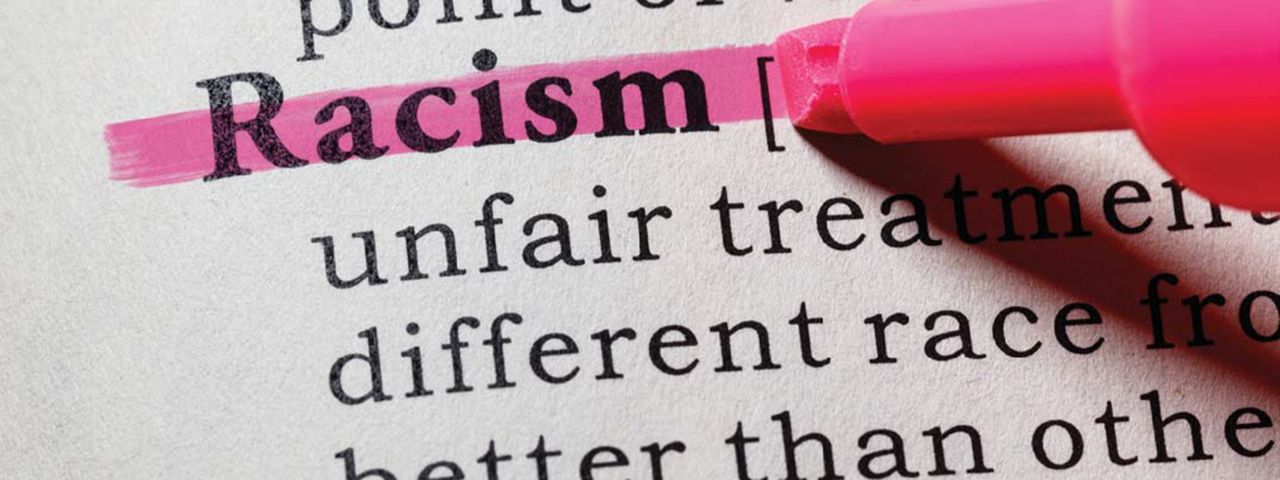Why “racism doesn’t exist” is the wrong response (even if you think it doesn’t)

How polarizing is the issue of racism in our country right now? Enough to divide the responses to this blog title into two groups: the fist pumpers and the eye rollers. My desire in this post is to address the second group.
How exhausting is the issue of racism in our country right now? Enough to further divide us into two groups: the group who is tired of dealing with it for hundreds of years and the group who is tired of hearing about it for a couple of months. It’s the second group – the “get over it, move on, realize that slavery was a long time ago” group – that I hope will give me just a few minutes of their time.
I get it. It wasn’t that long ago that I felt like that, not because I was apathetic or mad or frustrated, but because I was unaffected, unsympathetic, and unmoved. And then I watched “The Help.” Now, watching that movie didn’t make me an expert on the history of racism in our country, but by the end of the movie, something had happened.
I. Was. Moved.
I felt the weight of what had been done by people who looked like me to a whole group of people who didn’t, and I wept. Uncontrollably. I sat in a big chair watching the credits, sniffing and trying to breathe as my family looked at me like I’d lost my mind.
I hadn’t, but as the words faded from the tv, I realized that I’d lost my heart. I’d become so full of my life, my world, my – dare I say it? – privilege, that I’d become numb to what so may had felt for so long.
(Hang with me, group 2, I’m headed somewhere.)
That experience at the end of the movie lit a fire in me to want to learn, and listen, and love like I’d never learned, listened, and loved before. It’s funny when I think of the books I’ve read since then – Woke Church, Black and Free, I’m Still Here, How Black is the Gospel?, Talking to Strangers, Daring Greatly, One Blood, Do All Lives Matter?, Under Our Skin, and the one I’m currently reading, The Color of Compromise.
I felt pretty good about that list until I saw the list that John Perkins recommends as a STARTING POINT and realized that I haven’t even begun.
Just thinking about his list made me tired. Throw in the pressure of potentially saying the wrong thing and being accused of white fragility or white flight or white fright or not understanding my white privilege, and the fear of speaking out is almost overwhelming.
(Quick reminder to Group 2 before we get to my actual point: we’ve just begun to feel the pressure – Group 1 has hundreds of years of weariness)
Now… onto the point of this post… and hang in until the end…
Just for the sake of argument, let’s say that racism is made up. That it’s a divisive tool used to stoke the fires of division in order to achieve a desired political outcome. Let’s pretend that lynchings never happened, that hooded men were imaginary, and that the blazing crosses weren’t real. Let’s just say that this is all a dream and that minorities have had every opportunity that the majority has had since the founding fathers signed our country into existence.
Why would we not still comfort those who are hurting?
Is this who we are? Is this the church? A group of people who would dismiss very real and painful emotions because we think they’re not grounded in reality? If that’s the case, I have one simple question for Group 2:
How did you respond to your children when they woke you up after a bad dream?
My guess is that you didn’t dismiss their fears and tears with a logical conversation about how monsters didn’t exist. Sure, you knew they weren’t real, but you comforted the very real emotions that the child you loved was feeling. I bet you even turned on the light, looked under the bed, and stayed in the bed with your child until he or she fell asleep. In other words, you went to great lengths to help your child overcome the pain he or she was feeling, and you did all that when you were also tired!
[Tweet “The pain in the black community is real, but the dismissal of the black community’s pain is brutal.”]
To be clear, I don’t think the issues that our brothers and sisters have faced for centuries are a dream; I think they’re a nightmare. On that, we don’t have to agree. I think that we can and should have real conversations about it and I think that we may still have different opinions about what’s real and how we should deal with it.
When it comes to racism and racial injustice, we have the freedom to disagree about solutions, but we don’t have the freedom to dismiss the problem.
[Tweet “When it comes to racism and racial injustice, we may disagree about solutions, but we can’t dismiss the problem.”]
The pain in the black community is real, but the dismissal of the black community’s pain is brutal, and our generation is the only one who can currently take steps toward comfort, love, and healing because we’re the generation who is being woken up by brothers and sisters who didn’t just have a bad dream, but who actually lived through a nightmare.
How we respond to their cries will determine when the nightmare can finally end.







Leave a Comment